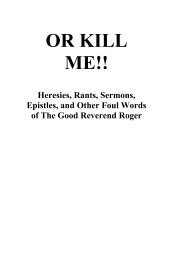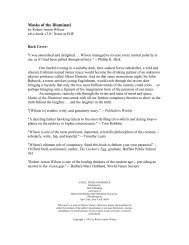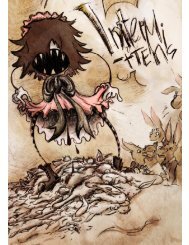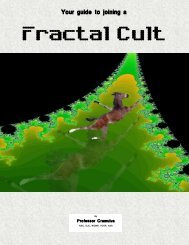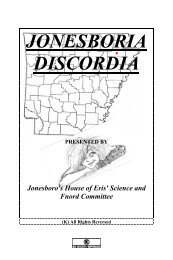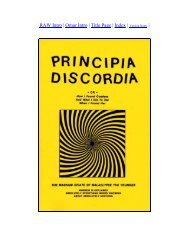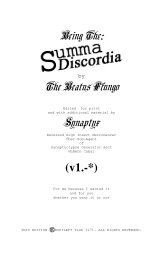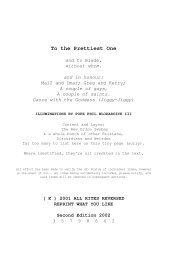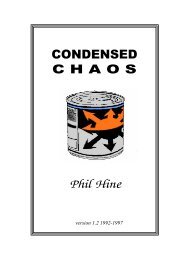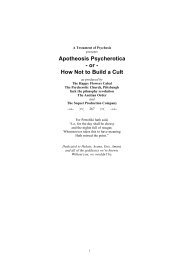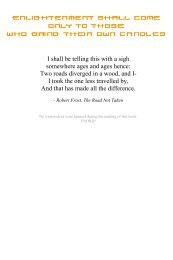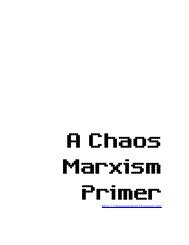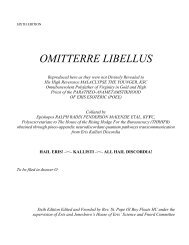Coincidance - Principia Discordia
Coincidance - Principia Discordia
Coincidance - Principia Discordia
Create successful ePaper yourself
Turn your PDF publications into a flip-book with our unique Google optimized e-Paper software.
70 COINCIDANCE<br />
psychologists, that the sad person lives in a sad world, the angry person in an<br />
angry world, etc. Then the sad person reads sad books and the angry person<br />
reads angry books? Even if those books seem funny and optimistic, say, to<br />
other readers?<br />
"This book is a mirror. When a monkey looks in, no philosopher looks<br />
out." —Lichtenstein. Does that refer to one book only, or to all books?<br />
To quote Gurdjieff again, "Life is real then only when I am." If normal<br />
(mechanical) consciousness consists largely of uncritical inferences, projections,<br />
glandular-emotional reactions etc. then what it perceives, in art or in life, will<br />
have many traits of dream, will it not? If consciousness is intentional<br />
(Husserl), then making an effort to perceive will make both onesef and the<br />
surround more vivid, more meaningful, more "real," perhaps?<br />
"Who is the Master who makes the grass green?" (Zen koan)<br />
If you look at your watch, realize you still don't know the time, and look<br />
again, were you strictly speaking awake the first time you looked?<br />
Ezra Pound in one of the later Cantos writes:<br />
awareness restful & fake is fatiguing<br />
What the devil does that mean? Does it connect with my topic here?<br />
".. .to be truly human demands a real effort of will rather than our usual vague<br />
assumption of 'mutual concern.<br />
—Colin Wilson, Criminal History of Mankind<br />
Everybody who has taken a modern literature course, even if they've<br />
never read Joyce, knows that the last word of Ulysses is "yes" and that the<br />
whole book leads up to that affirmation. The first word of Ulysses happens to<br />
be "stately," which contains "yes" backwards (StatElY). Is this an accident? If<br />
not an accident, why did Joyce do it?<br />
Hamlet's first three speeches (short ones, by the way) each contain a pun.<br />
Was Shakespeare just feeling whimsical when he wrote that, or is it a clue to<br />
Hamlet's problems and the problem of the play itself?<br />
St. John's Revelations, St. Augustine's City of God, Crowley's Magick in Theory<br />
and Practise, among others, all have 22 chapters. Is this an accident? If not an<br />
accident, what does it indicate? (Why does the first sentence of Ulysses have<br />
22 words, beginning with "stately" and ending with "crossed"?)<br />
Krishnamurti distinguishes between thinking, an active process, and<br />
thought, the result of past thinking filed away in the memory of the brain, or<br />
in a library or computer, etc. Thought contains all the wisdom, and much of



